Have you ever been in a room where several different people had persisting divergent ideas about how to move forward, solve a problem, or respond to a set of circumstances? We all have, and we tend to know that it happens much more frequently than it used to. Name a political, social, or economic issue, and one will discover multiple potentially polarizing perspectives with any of them.
Did you wish you had the skills and the internal wherewithal to harmonize the contrasting perspectives or to somehow integrate all the perspectives into one overarching idea that accounted for each person’s voice and thoughts? Did you hope you could create an encompassing viewpoint that was greater than the sum of each competing idea? Or perhaps you were hoping the leader in the room could help harmonize the varied viewpoints or create one idea that was greater than the entirety of the individual thoughts.
I would invite you to observe our leaders at any level either in the private or public sector. Do they have these skill sets? Do they have the internal temperament to reconcile and integrate often complex and opposing ideas, including their own? Shouldn’t they? Wouldn’t that be refreshing? We’ve all personally experienced way too many good-hearted, well-meaning, smart leaders who get completely sideways with others, and the numerous, often emotional viewpoints they encounter. As a result, they lose the opportunity to integrate multiple ideas into a better, more encircling idea, and often compromise their effectiveness as leaders as they descend into a patriarchal role, become Machiavellian in their style, or choose not to hear the voices and thoughts of others.
As a side story, I once observed two men, both leaders in our community, both caring people, each competent in their respective roles, have a very public and quite personal ongoing disagreement. The media headlined their divisiveness for the entire community to see. Instead of trying to harmonize their perspectives and create something better than either of their ideas, each of them chose to dig into their personal agenda, make the other their enemy, and on top of that, galvanized their respective camps to think resentfully about the other. Sound familiar? Are we tired and done with this way of being with each other?
In our School of Statesmanship, Stewardship, and Service, we teach students the expertise one needs to ‘harmonize contrasts’ and to ‘create a whole that is greater than the sum of the parts.’ Both rather high-level skills are becoming more necessary to be effective in our world, in a community, in a business, or in any organization. In today’s fast-paced world, the number of parts is increasing, and instead of standing still, they are now moving. Issues are much more complex, there are exponentially more dots to connect, more people with dug-in ideas, and, more than ever, we need the capacity to connect the dots, unify the parts, and to create a whole that is greater than the aggregate of the different perspectives.
If one wants an example of how this can happen, I recommend you attend a symphony orchestra performance. There can be fifty to eighty different musical instruments being played at any given time vis a vis various horns, brass, percussions, and strings. Each person playing their specific instrument brings their musical talents, gifts, and skills. The role of the maestro is to harmonize the various talents, gifts, and the melody vibrations of the musical instruments so the listener receives a beautifully conducted and unified piece of music. Incidentally, Elliot Moore is one such maestro in his role as conductor of Longmont’s Symphony Orchestra.
We believe statesmen need to have the character and skills to be able to navigate more skillfully through the mazes of multiple perspectives because of the many moving parts, the diverse perspectives of people, and the increasing volatile tone that accompanies these many parts and people.
In our imperfect world, we should welcome inevitable conflict, misunderstandings, and disagreements. They can be quite useful in the development of new and more comprehensive perspectives, evolved enlightenment, and even greater clarity.
Trained and skilled statesmen can not only help mitigate these conflicts and misunderstandings, but they can also actually convert them into a higher form of thinking that serve greater purpose. To the circumscribed mind, the world may present many problems and situations which apparently portray disharmony and indicate absence of effective coordination, but there is a skill set that renders one more able to observe wider stretches of phenomena and more apt at detecting the unity which underlies the diversity and can create a more crystallized version from the fragmented parts that satisfies one’s curiosity, provides for aesthetic appreciation, and is ethically sensitive.
Would you be interested in knowing the answers to the following questions? How does one transcend the rhetoric that keeps us stuck in a vicious cycle of never-ending drama? How does one shift the nature of the conversations away from what’s wrong, who’s to blame, and why we need to be afraid towards the gifts and generosity of people? How does one communicate in a way that simultaneously appeals to vastly different minds and personalities, that stimulates imagination, provokes empathy and critical thinking without arousing antagonism? How does one connect with others in ways that avoid preconceived opinions and places new perspectives into other minds without prompting self-defense and personal resentment?
Our School of Statesmanship, Stewardship, and Service offers forty-five different courses that will assist you in answering these questions and in navigating the innumerable and growing political, social, economic, and even personal polarizing forces in our midst. Much as a maestro can create beautiful symphonies with dozens of different musical instruments, the School of Statesmanship, Stewardship, and Service can teach you to bring about harmony with the myriad of ideas and personalities that you are encountering.

